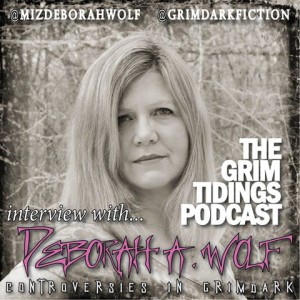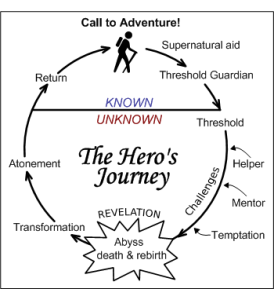Well do I know the angst and anxiety that go along with being an aspiring author. As I am new to publishing, myself, but have already garnered some level of success (I did just sign my second multi-volume contract in less than a year) I’d like to pay forward a bit of the excellent advice that’s floating around out here in the help-me-o’sphere. And I’ll begin near the end, by telling you how I got not just an agent, but a rockstar agent with Trident Media Group.
Nothing Left to Lose
It took a series of disasters to knock me down to rock bottom, a dogged, desperate, forget-all-wisdom commitment to drop out of life for a year or so and finally write that book I’d been dreaming of for decades, and a good friend who believed in me when I couldn’t find the courage to believe in myself, but I’d finally done it: I had finished writing THE DRAGON’S LEGACY.
A Ridiculous Book
It was a bit of a ridiculous book, even by fantasy standards. I had a 170,000-word manuscript with two prologues and an unwieldy number of point-of-view characters. I knew my book had a lot going for it, but I also knew that it would be a hard sell in today’s market. In order to get the agent I needed, I would need to master the submission process.
I needed the perfect query, a persistent mindset, and maybe a little bit of luck.
The Perfect Query
Since this book would be an exceptionally tough sell, and because I am Queen of the Scatterbrains, I first set out to understand the submission process and get my ducks in a row. I’d been stalking researching literary agents for months, making short and longer lists of agents who represented books like mine. Some of these agents wanted ten pages, some wanted ten pages and a synopsis, some wanted fifty pages, some just wanted a query. I spent a couple of weeks reverse engineering successful query letters, struggling to transform the Gordian knot I called an outline into two pages of something that made sense, writing a synopsis (I’d rather be waterboarded than write a synopsis of a 170k word count multi-pov fantasy novel ever again, thank you very much) and saving the first chapter, first three chapters, first ten pages, and so forth in separate files. Then I created a spreadsheet of agents I would love to work with, their submission requirements, books they had represented, and what they were currently looking for. I felt that it was important for me not only to be able to describe my book, but also to show that I had done my research and was taking a professional approach to writing.
A Persistent Mindset
My initial goal was simple: I would query one agent a day, using my already-assembled materials, until I reached the end of my list of dream agents, and then I would start a new list. Though it was more than a little intimidating, I started with those agents who are known to be the very best in my genre, those who represent the books I love to read. I can’t say that I honestly believed I would get such an agent, but I’d never really believed I could finish this book, either, so what the heck.
A Little Bit of Luck
One of my favorite places to write is my local bookstore-slash-café. I was getting ready to send off a second round of queries, so I stopped in for a tub o’ coffee. They were brewing a new pot, so I had about two minutes’ worth of free time, and because of this I wandered over to the magazine section and picked up the latest issue of Writer’s Digest. In that issue I found a Literary Agent Spotlight:
http://www.writersdigest.com/editor-blogs/guide-to-literary-agents/literary-agent-spotlight-mark-gottlieb-of-trident-media-group
I thought I needed a grouchy old white-haired guy with a wrinkled sweater and a basement full of musty old books. This agent was young, and new, and…holy cow, he was with Trident Media Group, which was at the very pinnacle of my wish list. There’s no way, I figured, a novice author with a weird book could ever get such an agent. But I steeled my last nerve and submitted my query letter through Trident’s site. Then I refreshed my email inbox to make sure my submission had gone through.
There, not two minutes after clicking ‘submit’, was a request for a full manuscript.
After taking a lot of deep breaths, and with shaking hands, I emailed my entire manuscript to Mark Gottlieb…
…who took the weekend off to read it…
…by Sunday afternoon, Mark had finished reading my manuscript and sent me another email, this one indicating that he would like to speak with me regarding representation.
Within four months, Mark had sold THE DRAGON’S LEGACY in a three-book-deal to Titan Books; it will be released in hardcover Spring 2017. Less than a year later, my rockstar agent sold my second book, DAUGHTER OF THE MIDNIGHT SUN, also to Steve Saffel of Titan Books in a two-book deal, also set to be released Spring 2017.
Write a good book, write a good query letter, do your homework. And dare to dream big.




Gold Standard
As a new writer, still in my original packaging and waiting to be put out on the shelves for people to buy (or not), I am at a weird and enviable stage in my career. Weird, because while I’ve sold a book (or three) my work has yet to be made public, so I’m still Nobody. Enviable, because I’ve successfully leapt the hurdles FINISH THE BOOK, GET AN AGENT and SELL THE BOOK, so I’m kinda Somebody, as well. Enough of a Somebody that I find myself fielding the “how-did-you” questions, enough of a Nobody that I’m easily approachable and still have a few minutes’ free time to spare for giving advice of dubious merit.
One question that is often asked but difficult to articulate, even for writers–perhaps especially for writers, and I imagine other artists as well–is: “How did you DO it?”
Q: “What is the meaning of Life, the Universe, and Everything?”
A: (That one’s easy): 42.
Q: “How did you DO it?”
A: That one’s a bit more difficult…
“How did you DO it?” You ask. Do you mean ‘How did you get an agent’, or ‘How did you choose a point of view’, or ‘How did you get past editing Chapter One till you’d worn the letters off your keyboard and gave up to go play mini golf’?
All of those and more, of course.
“What writing tools do you use? What is your revision process? How did you decide on POV characters?” The aspiring author sees that first impossible hurdle–FINISH THE BOOK–and asks, “How did you DO it?” When she is really asking, “Can I do it?”
The answer she fears, echoing deep in the dank and slimy pit of her soul, is “No, you can’t.”
That was the answer I always got, anyway. And then my demon would laugh as I shut down Word and logged onto Facebook instead. Because that bitch wants nothing more than for you to give up, so that she may remain in the shadows and nibble at the edges of your soul without interruption.
So, what changed? How did I go from someone who desperately longed to be an author to someone who has written THE BOOK and shepherded it all the way to a sale? How did I elude the ubiquitous lack of self-confidence that hunts artists and eats them for breakfast?
How did I do it? Was it Scrivener? A workshop? A critique group?
Did I sacrifice a goat???
Nope. No goats were harmed in the creation of this book.
I found a superhero, someone who believed in me and my work, someone who cheered me on and freaked out in a good way with every new chapter and wheedled and cajoled and kicked my ass every step of the journey. Someone who believed in me even though I never did. I found my #1 fan.
The Author and her #1 Fan
If you are an artist of any color, the world is going to judge you and find you unworthy. It is likely you will judge yourself unworthy; I know I did. But if you have one person lighting a candle in the darkness for you, one person who hangs your painting on the wall or taps her foot in time to your singing or stays up till two in the morning reading your latest chapter and then threatens to break your arm if their favorite character stays dead…
That’s the good stuff, man. That’s the gold standard.
This one’s for you, Kristine. I couldn’t have done it without you.
I’m writing as fast as I can!
At a recent visit to the insane asylum. We fit right in.
Follow on Twitter
Connect on Facebook
Visit website